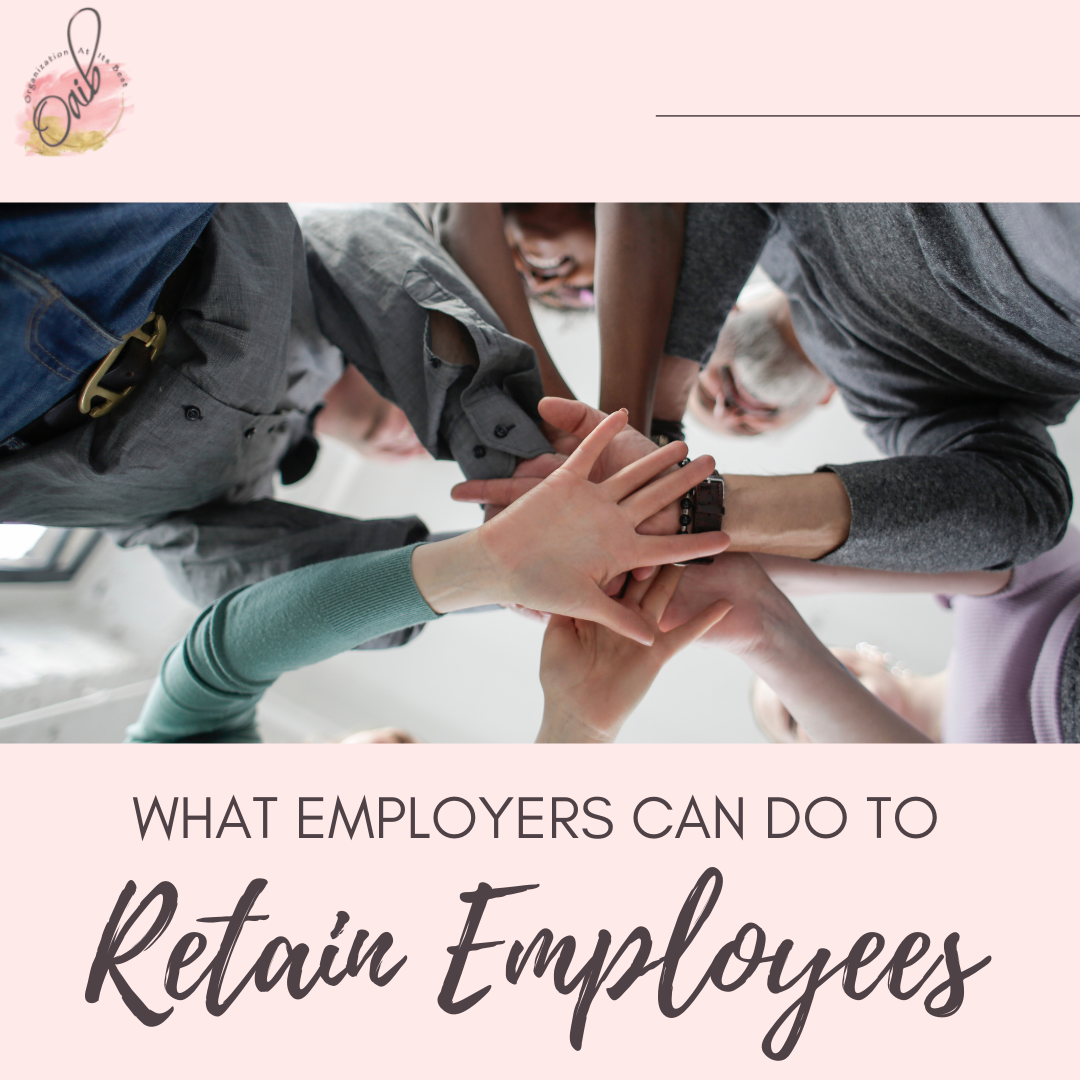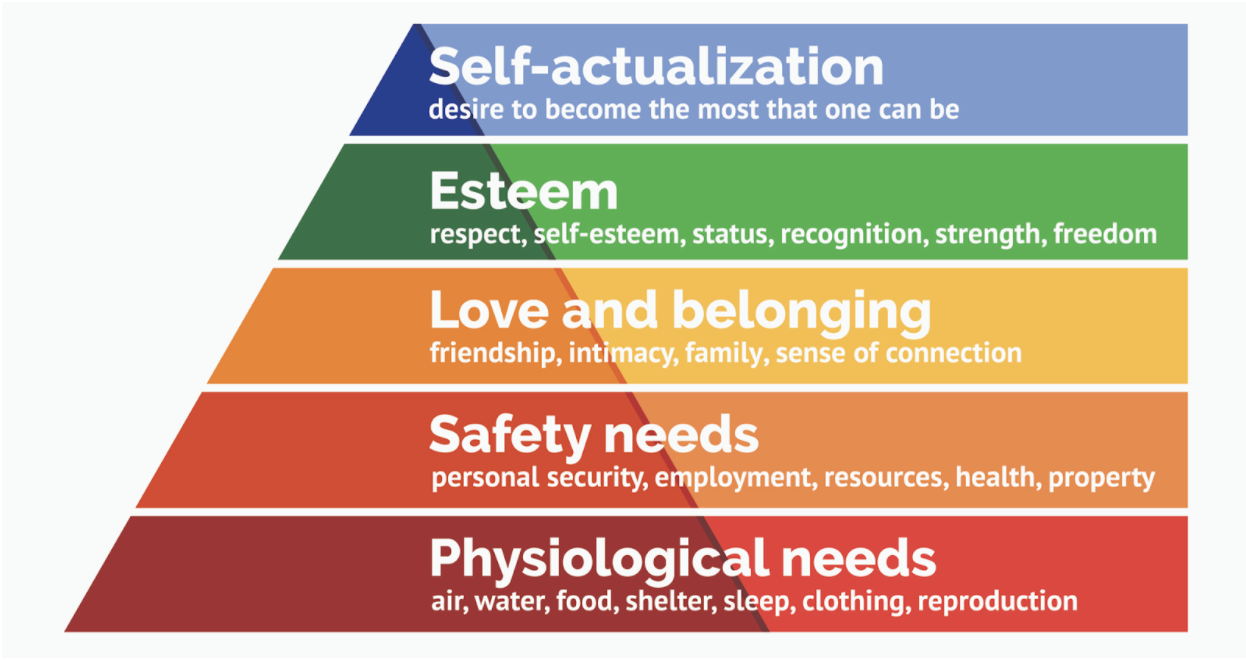
JANUARY 4, 2022
What Employers Can Do To Retain Employees
In 2019, around 3.5 million people left their jobs each month. Fast forward to the pandemic, and that number sky-rocketed in the “Great Resignation.”
While the turnover rate has returned to pre-pandemic levels, it is expected to continue rising as employees seek more flexibility, autonomy, and meaning from their jobs.
What’s the key to employee retention?
A 2021 survey indicated that 94% of workers would stay with an organization longer if that company invested in helping them learn, grow, and engage. Investing in employee retention means investing in people.
When OAIB’s clients invest in their staff, they create higher morale and employees are less likely to leave. But, to be successful this investment must meet employee needs.
And what needs are we talking about? Let’s ask Abraham Maslow, creator of the Hierarchy of Needs. Dr. Maslow says that as we fill our basic needs (at the bottom of the graph below), we are better able to fill our higher needs and reach our full potential as human beings.

Image Source: Simply Psychology.
Let’s understand how each of these needs can relate to an employee retention program.
Physiological Needs – Fair and equitable pay, at least a living wage, will enable people to meet their physical needs. Workers who struggle financially won’t perform at their best. Employers can help ensure basic physical needs are able to be met.
Safety Needs – A safe workplace environment allows employees to speak up or admit mistakes without fear of retaliation, humiliation, or repercussion. As an employer or manager, you can cultivate a culture where all employees receive a mutual level of respect.
Belonging Needs – The number one reason employees quit is because of a bad relationship with their manager. Poor work relationships can be isolating. Inclusive work cultures, on the other hand, help workers feel a sense of belonging. If people feel they’re in the right place, they are far more likely to commit to the company long-term.
Esteem Needs – Everyone wants to feel important and appreciated. When employees feel recognized by their teammates, supervisor, and company, then job satisfaction increases. Recognizing an employee’s hard work and rewarding them with simple praise or further investment can produce a cycle of confidence, which boosts morale, which improves productivity.
Self-actualization Needs – In Maslow’s hierarchy, self-actualization (a human reaching their potential) is the ultimate goal. When a workplace supports employees in becoming the best version of themselves, people are empowered, dedicated, and feel a sense of belonging.
Invest in your team: healthy, growing employees can create a healthy growing organization. Boost morale and boost retention rates.
It’s more important than ever to implement an employee retention strategy. Take a look at our coaching and Leadership Academy for more information.
Organization At Its Best Founder and Chief Executive Officer, Tawana Bhagwat, has more than twenty-five years of experience directing Human Resource administration, change management, learning and development, facilitation, DEIB, and executive coaching.

